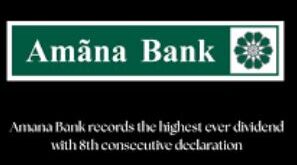 Covered head-to-toe in a black abaya embroidered with red and yellow flowers, Amal Abbas waits for her turn to place a deposit at Cairo's Al Baraka Egypt Bank, one of Egypt's two fully-fledged Islamic banks.
Covered head-to-toe in a black abaya embroidered with red and yellow flowers, Amal Abbas waits for her turn to place a deposit at Cairo's Al Baraka Egypt Bank, one of Egypt's two fully-fledged Islamic banks.
Although Egypt is considered the birthplace of Islamic finance, which adheres to Islamic principles banning interest and speculative trading, its growth has lagged due to past corruption scandals, while the previous government sought to enforce a more secular financial system.
But after the Egyptian revolution toppled Hosni Mubarak and his government, Muslims like Abbas are embracing Islamic banking, raising the prospect that Egypt could become another thriving centre of Islamic finance.
"I prefer Islamic finance, it keeps me far from usury and I feel my money is blessed," said the 50 year-old research centre manager at the Mohandessin branch of Al Baraka Egypt Bank.
"My husband has been dealing with mainstream banks for more than 30 years and all his projects failed because they were funded by unblessed money."
According to a 2009 report by consulting firm McKinsey, Islamic banking only accounts for 3 to 4% of Egypt's USD 193 billion banking industry. That compares with 46% in the United Arab Emirates.
"In a post-Mubarak era, the urgency of rebuilding and changing things will clash with the absence of resources and lack of money," said Ibrahim Warde, adjunct professor at The Fletcher School of Diplomacy at Tufts University.
That will likely present an opportunity for Islamic finance houses in the Gulf region, which now serves as the industry's global hub.
"Egypt is going to look towards the Gulf for money and it's going to have to offer Islamic options to maximise investments."
Cairo-based National Bank for Development, which is converting into a full-fledged Islamic bank, is already 49% -owned by Abu Dhabi Islamic Bank. Al Baraka Egypt is in fact a unit of Bahrain's Al Baraka Bank.
There's also keen interest in Egypt for Islamic insurance, or takaful, which makes up 5 percent of Egypt's USD 1.45 billion insurance market but is expected to grow dramatically, according to a March report by Islamic consultancy BMB Islamic.
Salama Islamic Arab Insurance's chief executive Saleh Malaikah said this month that demand for its products in Egypt have grown significantly since the revolution.
According to data from Bankscope and Thomson Reuters, Egypt could see Islamic finance assets grow to USD 10 billion in 2013 from USD 6 billion in 2007.
Political tool
Challenges remain, given the less than encouraging history of Egypt's Islamic finance industry.
Millions of Egyptians were stung by ponzi schemes in the mid-1980s, when a number of money management companies touted Islamic investments at returns above local interest rates.
A new post-Mubarak administration is expected to show more interest in Islamic finance, despite concerns that a growing Islamic finance industry could also provide political support for Islamic opposition groups in the country of 80 million.
Egypt will need to adopt Islamic banking as one tool to appease politically active Islamic groups or face a barrage of criticism for adhering to the previous regime's hard line against the industry, said Humayon Dar, chief executive of consultancy BMBIslamic.
"Egypt is a religiously sensitive country. There are a number of families and small savers who wouldn't want to use the conventional system," he said. "If there's a movement towards interest-free banking, that would draw deposits."
Grassroots support is already emerging among conservative Muslims. Manal al-Moursi, another bank customer at Al Baraka Egypt Bank, said Egyptians are turning to Islamic finance, in part, to show their support for the Muslim Brotherhood.
The Muslim Brotherhood, founded in 1928, was long persecuted as the main challenger to the ruling National Democratic Party in parliament and was one of the most vocal protesters during the demonstrations that toppled Mubarak on February11.
With the dissolution of the NDP and growing acceptance of the Muslim Brotherhood in mainstream politics, experts say Islamists will have increasing influence in the new Egypt and Islamic finance will serve as one way to propagate Islamic values and gain supporters.
"The Muslim Brotherhood are for Islamic finance because it is related to religion," said Mohasseb Refaat, deputy manager at Bank of Alexandria. "They will promote the idea so long as it is in their benefit."
Refaat said the industry is likely to gain more footing in Egypt if the Brotherhood secures a significant number of seats in the 508-member parliament in September. One leading Brotherhood figure said the group could field candidates for as many as 49% of the seats.
Even secularists calling for less religion in society may make a pre-emptive attempt to promote Islamic finance ahead of elections to reach a wider group of constituents.
"Secularists will see supporting Islamic finance as a way of stealing the thunder of the Islamists by giving people an outlet to express their religiosity," Warde said. "We've seen that strategy in other markets such as Iraq and North America. Even groups that were opposed to political Islam looked to Islamic finance as a way of preventing extremism."
Britain and France, for example, have changed regulations to accommodate Islamic transactions. And Malaysia, with its thriving dual system of conventional and Islamic finance, has been the biggest success story in the industry, serving as a model for new markets looking to offer Islamic products.
Challenges remain
Decades of lost growth, however, have left Egypt lacking proper financial regulation to accommodate Islamic financial instruments such as Islamic bonds, or sukuk.
The head of the Egyptian Financial Supervisory Authority (EFSA) said last year Egypt would issue its first regulations governing sukuk in the second half of 2010 and later delayed further to the first quarter of 2011. That deadline has passed as well as the government restructures and plans now appear in limbo.
Experts say the government will need to issue debt guidelines for sukuk issuance and remove tax barriers that make Islamic transactions commercially unviable in order to draw foreign investment from oil-rich Gulf countries.
And the revolution may spell a willingness among Egyptians to embrace alternatives, particularly if they can derive benefit from it for some of the social ills that sparked the protests.
Under the Mubarak regime, critics said the rich benefited from lending and other business opportunities while the poor were plagued by unemployment and low wages. Malik said Islamic finance with its focus on interest-free financing and ethical investments would appeal to the common man.
"I think the revolution gave a good push for Islamic finance to become the banking alternative in Egypt."
Post Disclaimer | Support Us
Support Us
The sailanmuslim.com web site entirely supported by individual donors and well wishers. If you regularly visit this site and wish to show your appreciation, or if you wish to see further development of sailanmuslim.com, please donate us
IMPORTANT : All content hosted on sailanmuslim.com is solely for non-commercial purposes and with the permission of original copyright holders. Any other use of the hosted content, such as for financial gain, requires express approval from the copyright owners.
 Sri lanka Muslims Web Portal Sri Lanka Muslims News Center
Sri lanka Muslims Web Portal Sri Lanka Muslims News Center
 Donate
Donate


